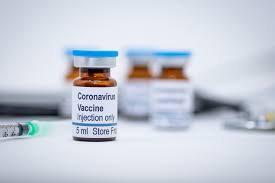The World Health Organisation (WHO) has said a vaccine for coronavirusis unlikely to be available for at least 12 months amid rising hopes that a cure could be developed by the end of the year.
Teams of scientists and pharmaceutical groups across the world are racing to produce an effective vaccine that will be able to halt the spread of Covid-19, which has so far killed more than 120,000 people worldwide.
There are at least 20 currently in development, including a handful at the clinical trial stage.
But while rapid progress is being made – on Tuesday, China joined the US in approving early-stage human tests for experimental vaccines – the WHO is trying to manage growing expectations.
“We shouldn’t really be expecting to see the vaccine for 12 months or longer,” spokeswoman Dr Margaret Harris said during a press briefing on Tuesday.
The WHO has previously said that it could take up to 18 months for a vaccine to be developed and successfully distributed across the world.
Dr Harris’ warning comes just days after researchers from Oxford University said that a vaccine for Covid-19 could be ready as soon as September.
Sarah Gilbert, a professor of vaccinology, said she was “80 per cent” confident the vaccine being developed by her team will work.
With human trials set to place within the next fortnight, Professor Gilbert told The Times: “I think there’s a high chance that it will work based on other things that we have done with this type of vaccine.
“It’s not just a hunch and as every week goes by we have more data to look at. I would go for 80 per cent, that’s my personal view.”
She added that having a vaccine ready by the autumn is “just about possible if everything goes perfectly”, but warned that “nobody can promise it’s going to work”.
Most experts have said a coronavirus vaccine could take up to 18 months to be developed and distributed globally, but Professor Gilbert wants to accelerate the clinical trial process by letting volunteers become infected naturally as soon as possible.
She said volunteers from places that have no imposed lockdown measures would produce more efficient results.
Tedros Adhanom Ghebreyesus, director general of the WHO, warned on Monday that the world’s “connectedness means the risk of re-introduction and resurgence of Covid-19 will continue,” stressing that “ultimately, the development and delivery of a safe and effective vaccine will be needed to fully interrupt transmission”.
The WHO has meanwhile said that the number of new cases of Covid-19 is easing in some parts of Europe, including Italy and Spain, but outbreaks are still growing in Britain and Turkey.
“The overall world outbreak, 90 percent of cases are coming from Europe and the United States of America. So we are certainly not seeing the peak yet,” Dr Harris added on Tuesday.
In China, “the biggest threat is imported cases,” she said, referring to the latest data.
The Guardian
 Lebanese Ministry of Information
Lebanese Ministry of Information



